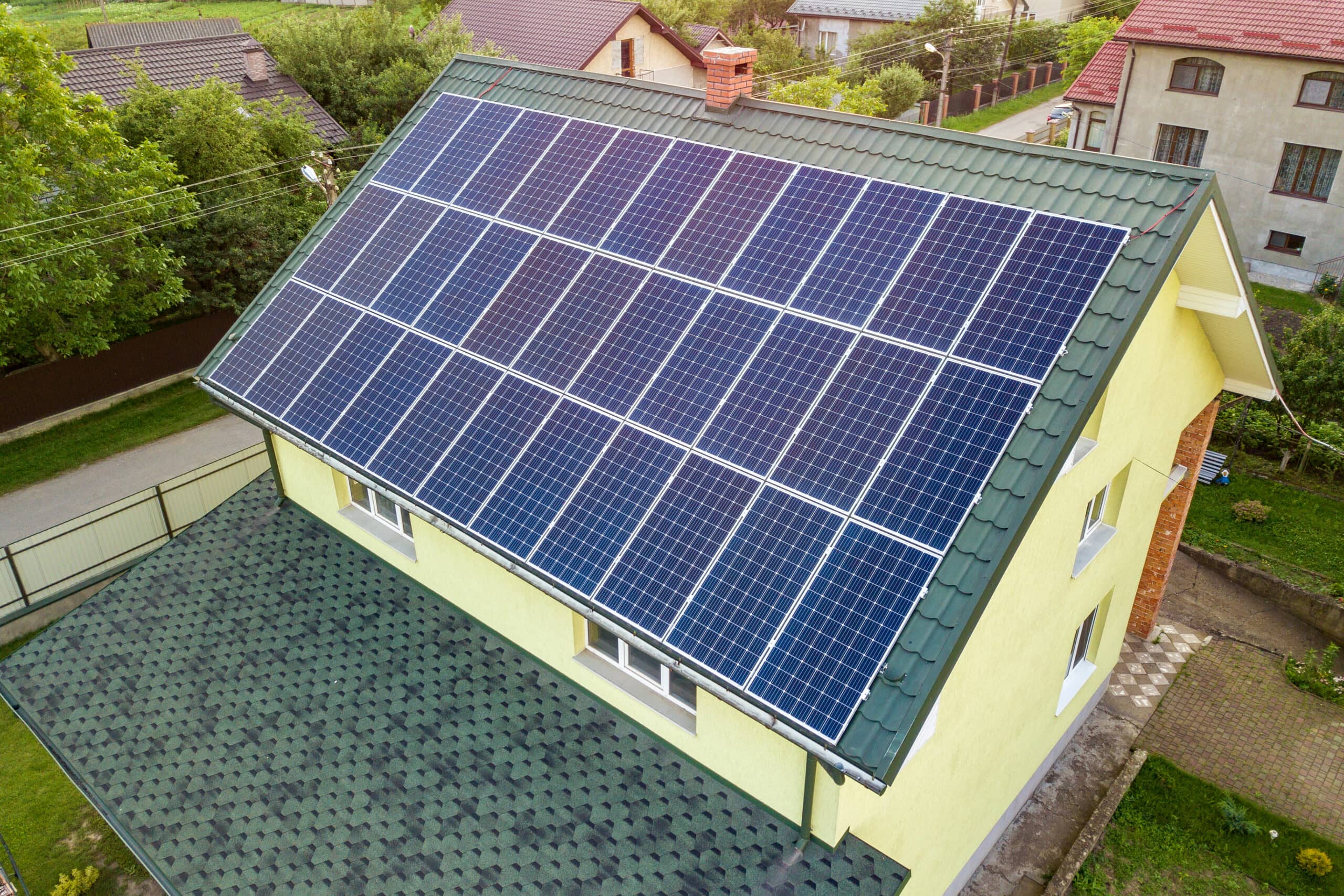Selling electricity back to the grid is known as net metering, and it has been gaining headway for homeowners in Canada, especially those equipped with solar panels. This article dives into the financial aspect of this renewable energy practice, exploring the potential earnings from selling surplus electricity back to the grid in Canada. Factors such as regional variations, system size, and electricity rates play crucial roles in determining the profitability of this eco-friendly endeavor. Let’s unravel how much money you can make through this sustainable energy initiative in Canada.
Net metering enables homeowners to generate electricity using renewable energy sources like solar panels. When these systems produce more electricity than the homeowner consumes, the excess electricity is returned to the grid. This process allows homeowners to receive credits or payments for the surplus electricity they contribute, ultimately offsetting their energy costs.
In Canada, net metering policies are primarily regulated at the provincial level, leading to variations in rules and incentives across different regions. Provinces like Nova Scotia, Ontario, British Columbia, and Alberta have established net metering programs with specific guidelines on system size limits, compensation rates, and interconnection requirements. These regulations promote renewable energy adoption, encourage energy independence, and support the transition to a more sustainable energy landscape.
For example, a homeowner with a 10 kW solar system in Nova Scotia could earn around $1,800 annually through net metering. In contrast, the same system might yield approximately $1,200 in British Columbia due to different compensation rates.
In Canada, net metering programs differ notably from province to province, each offering its unique approach and set of regulations, with critical distinctions observed in major regions such as Ontario, British Columbia, Alberta, and Quebec. Each province has unique regulations, system size limits, and interconnection requirements that impact how homeowners can participate in net metering and sell electricity back to the grid.
Variations become apparent when comparing the net metering incentives and compensation rates among provinces. Ontario, for instance, offers a net metering system where credits are provided for surplus electricity sent back to the grid. British Columbia, on the other hand, implements a net metering program with different compensation structures. Alberta and Quebec also have specific incentives and rates tailored to promote renewable energy generation and encourage participation in net metering initiatives.
The size of a solar power system directly impacts its energy production capacity and, consequently, potential earnings. Larger systems generate more electricity, leading to higher earnings through excess energy exported to the grid. Factors like local weather conditions also play a role in determining energy production levels.
To illustrate, a 5 kW solar system in Alberta could generate annual earnings of about $1,000, while in Nova Scotiia, similar systems might earn homeowners around $1800.
Electricity rates and compensation mechanisms influence the amount of money homeowners can make from net metering. Higher electricity rates mean more significant savings for homeowners when they offset their consumption with self-generated electricity. Compensation mechanisms such as credits or direct payments for surplus energy contribute to the overall earnings potential.
Several factors affect earnings in net metering programs in Canada. Let’s explore some of them.
Weather Conditions
Seasonal changes in sunlight intensity and duration directly impact energy production from solar systems, influencing earnings. In provinces like Ontario, where winters are less sunny than summers, homeowners may experience annual fluctuations in their earnings. Understanding these seasonal variations is crucial for homeowners to manage their expectations and plan for potential income fluctuations.
Balancing House Household Energy Consumption
Balancing household energy consumption with energy production is crucial in determining the amount of excess electricity available for sale. If a homeowner consumes more energy than their system produces, they may rely more on grid electricity, reducing the surplus available for sale. Optimizing energy usage through energy-efficient practices can help maximize the excess electricity sold back to the grid.
Understanding Provincial Incentives
The specific regulations and incentives each province offers can significantly impact earnings from net metering. Understanding and taking advantage of available rebates, tax credits, and other financial incentives can boost the overall profitability of a solar power system. Staying informed about changes in regulations and policies can help homeowners make informed decisions to optimize their earnings.
Implementing Energy Storage Solutions
Implementing energy storage solutions, such as batteries, can influence earnings by allowing homeowners to store excess energy for later use or sale during peak demand periods. By reducing reliance on the grid and maximizing self-consumption of generated electricity, storage solutions can enhance the economic benefits of net metering arrangements.
Generating your electricity through solar panels earns you money and reduces your monthly energy bills, leading to significant long-term financial savings. By offsetting your electricity consumption with self-generated energy, you can lower your reliance on grid electricity and decrease overall energy costs.
Installing solar panels can unlock various financial benefits, including government incentives, tax credits, and rebates that can help offset the initial investment and reduce the payback period. Programs like the Federal Solar Tax Credit and provincial incentives can make solar energy more affordable and financially rewarding for homeowners.
Solar panel installations can enhance the value of your property, offering long-term financial benefits beyond direct earnings. Studies have shown that homes equipped with solar energy systems tend to sell at a premium compared to non-solar homes, providing a return on investment if you decide to sell your property in the future.
Beyond financial gains, solar energy contributes to a cleaner environment by reducing carbon emissions and reliance on fossil fuels. Embracing renewable energy aligns with sustainable practices and positions homeowners as environmentally conscious, potentially attracting eco-conscious buyers if they decide to sell their property.
Electricity generation grants you energy independence, reducing your vulnerability to fluctuating energy prices and grid outages. By producing your energy, you gain more control over your energy supply, ensuring a stable and reliable power source for your household.
Net metering has many benefits, It’s important to be aware of potential regulatory changes that could affect future earnings from net metering. Shifts in government policies or utility regulations may alter the compensation structure for excess energy generation, impacting the financial benefits of participating in net metering programs. Staying informed about regulatory developments is essential for making informed decisions regarding solar investments.
Advancements in Solar Technology
Advancements in solar technology and energy storage play a crucial role in enhancing the profitability of net metering. Improved solar panel efficiency, energy storage solutions like batteries, and smart grid technologies can increase the amount of energy homeowners can generate and store for later use or sale. These advancements optimize energy production and enable homeowners to maximize their earnings by selling excess energy during peak demand periods when prices are higher.
Future policy developments can significantly impact net metering programs and homeowner earnings. Changes in government regulations, utility policies, or net metering program structures can influence the compensation rates for excess energy generation, the eligibility criteria for participation, and the overall financial benefits for homeowners. Keeping abreast of potential policy shifts and advocating for favourable policies can help homeowners navigate evolving regulatory landscapes and maximize their returns from participating in net metering programs.
Homeowners must weigh the long-term financial and environmental benefits of investing in solar power and participating in net metering programs. While upfront costs and regulatory considerations exist, the potential for sustainable energy generation, reduced electricity bills, and potential earnings from selling excess energy back to the grid make solar investments a compelling option. By embracing solar technology and staying informed about policy developments, homeowners can contribute to a greener future and secure financial returns over time.




